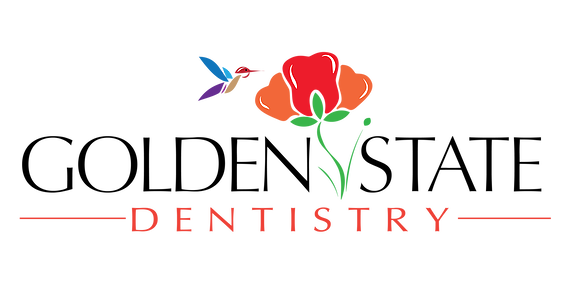 There are many misconceptions about oral health care and dental treatments. These misconceptions can prevent you from receiving beneficial dental treatment or engaging in oral health practices that keep your mouth healthy. Thus, it is important to understand the different between dental myths and facts to optimize the quality of your oral health and overall well-being.
There are many misconceptions about oral health care and dental treatments. These misconceptions can prevent you from receiving beneficial dental treatment or engaging in oral health practices that keep your mouth healthy. Thus, it is important to understand the different between dental myths and facts to optimize the quality of your oral health and overall well-being.
1. Myth: Tooth loss is genetic.
Contrary to the popular belief that tooth loss is genetic, tooth loss is largely preventable. Tooth loss is most commonly caused by cavities, which can be avoided with proper oral hygiene. With daily thorough brushing and flossing, regular dental visits, and preventative care, you can enjoy your pearly whites for a lifetime.
2. Myth: Your oral health isn't connected to your general health.
Bacteria from gum disease, which is caused by poor oral hygiene, can enter the bloodstream and lead to serious consequences, such as cardiovascular disease, dementia, respiratory infections, and pregnancy complications. In addition, certain diseases like diabetes and HIV/AIDS can lower your body's resistance to infection and contribute to oral health problems. Thus, taking care of your oral health is an investment in your overall health.
3. Myth: Brushing harder means cleaner teeth.
It's important to brush your teeth thoroughly, however, brushing too hard can wear down the enamel and cause discoloration and sensitivity. In addition, brushing too hard may also damage your gums and even cause them to bleed and recede. Thus, it's best to use a soft-bristled toothbrush and avoid applying too much pressure when brushing your teeth.
4. Myth: It doesn't matter what time of the day you brush your teeth.
The American Dental Association recommends brushing your teeth twice a day for two minutes at a time. In addition to the twice-a-day rule, it's important to also consider timing or when to brush your teeth. Your teeth are especially vulnerable to cavity-causing agents and gum disease when we sleep because antibacterial saliva production slows. Thus, brushing your teeth before bed and when you wake up is highly recommended.
5. Myth: Chewing a piece of gum is just as good as brushing your teeth.
It's not to say that chewing gum does not have its benefits for oral health, however, it is never a replacement for brushing your teeth. Sugar free gum can help displace bacteria in the mouth, increase saliva production, and freshen your breath, but it will not remove the sticky plaque that builds up on your teeth.
6. Myth: Brushing your teeth thoroughly before a dental hygiene appointment will hide poor dental care from the last six months.
No matter how thoroughly you brush and floss your teeth before your dental hygiene visit, your dentist will still be able to tell what your regular habits are, like whether you brush and floss regularly, smoke, or drink soda. For example, if you do not brush your teeth regularly, hard tartar forms on your teeth that you cannot get rid off with brushing alone. If you do not floss, your gums will appear swollen, red, and may even bleed during your dental hygiene visit. Bleeding gums and the amount of tartar are dead giveaways to poor oral hygiene.
7. Myth: Crowns and fillings protect against future decay.
Dental crowns and fillings do protect your teeth one way or another, however, they will not prevent your teeth from future decay. If you had a dental restoration performed on a tooth, it is just as susceptible to decay as it was prior to the restoration. Furthermore, if another cavity develops in the same area, future treatment will be more costly. Thus, it is important to regularly brush and floss thoroughly all of your teeth, whether previously restored or not.
8. Myth: Dental x-rays are dangerous.
Dental x-rays are safe and are very very low in radiation; a set of full mouth x-rays is about the same amount of radiation you would get flying from Seattle, WA to Medford, OR. While dental x-rays expose you to some radiation, the benefits of having them performed outweigh the risks. Dental x-rays can alert your dentist of any changes in your hard and soft tissues, and help diagnose conditions such as gum disease, cavities, and even tumors.
9. Myth: You should avoid the dentist while pregnant.
The hormones associated with pregnancy may increase the risk of gum disease. About 50% of women develop gingivitis (early stage of gum disease) at some point during their pregnancy, so it's important for pregnant women to be extra vigilant about their oral health and not to skip their routine dental check-ups and cleanings. Emergency and some restorative dental work are safe during pregnancy; however, cosmetic procedures, such as veneers and teeth whitening, should be delayed until after the baby is born.
10. Myth: You only need to visit the dentist if you have a problem.
Initial stages of gum disease and cavities often go unnoticed until they progress. Furthermore, if you use alcohol, smoke, or eat an unhealthy diet, then your teeth are more vulnerable to dental problems in general. Thus, getting routine dental checkups every 6 months is important to avoid discomfort and costly dental treatment in the future.
11. Myth: Smile Direct Club is the same thing as Invisalign.
Although the aligners from Smile Direct Club and Invisalign may look similar and offer the same promise of straighter teeth, there are important differences between the two options. The main difference is that Invisalign aligners have attachments that are placed on your teeth by a dentist in the beginning of your orthodontic treatment. The attachments help move the teeth in the desired direction. Without the attachments, there is a chance your teeth will move in an unpredictable and unfavorable way. Thus, Invisalign typically treats more complex dental problems (e.g. crowding), while SmileDirect Club only treats very minor cases (e.g. tooth gaps). In addition, there is more treatment oversight with Invisalign, where a dental visit is every 4-6 weeks, while SmileDirect Club check-ins are about every 90 days (~12 weeks).
12. Myth: Teeth whitening will damage your teeth.
Professional teeth whitening that's performed under the supervision of your dentist is safe and effective, and will not damage your teeth. However, it is important to note that some over-the-counter options have been known to damage teeth and gums; thus, it is best to choose a professional option.
13. Myth: Primary teeth are not permanent, so you do not need to take care of them.
Primary teeth hold space for adult teeth growing in the jaw. If a primary tooth falls out too soon, other teeth in the mouth will try to move into that space and block the permanent tooth from coming in properly. This can lead to crowding and bite misalignment. Thus, establishing dental habits early on can help protect the development of adult teeth.
From regular dental check-ups to professional teeth whitening to dental crowns and implants, our team at Golden State Dentistry can help you optimize your oral health. Call our office and schedule a dental visit (925) 705-7093 or request an appointment online.


.jpg?width=712&name=GSD-Scalloped-Tongue-Causes-and-Treatment-Blog-01.27.2210.21.21%20(1).jpg)











.jpeg?width=425&name=GSD-How-to-Combat-Dental-Plaque-07.22.24-2%20(1).jpeg)



